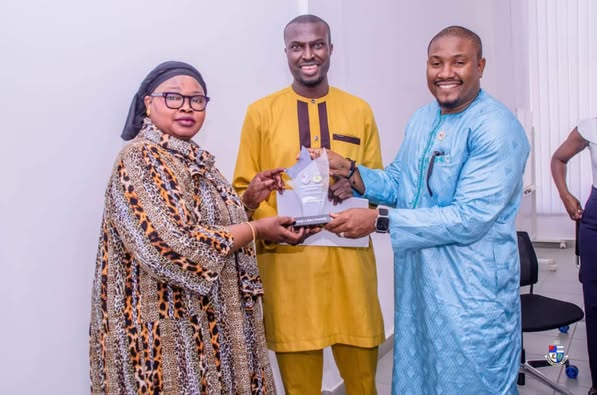By: Alieu Jallow
Veteran human rights defender Madi Jobarteh has called for urgent reform in The Gambia’s political parties, warning that deep-rooted stagnation and personality-driven politics are stifling democratic progress in the country.
In a detailed Facebook post reflecting on the ongoing internal friction within the United Democratic Party (UDP), Madi argued that the party’s turmoil is symptomatic of a broader dysfunction that has long plagued Gambian politics.
“The vibrations rumbling in the UDP are nothing new, unexpected, or surprising. Rather, they reflect an outdated system that has characterized our political parties since independence, for which this country has been suffering from bad governance ever since,” Madi Jobarteh wrote.
According to him, the “malaise afflicting the UDP” is not unique but exists across the board, pointing to a common failure in governance, internal democracy, and leadership structures within political parties.
“When any group of people is stagnant and unable to move and evolve, it generates division, injustice, antagonism, and resentment from within,” he noted, adding that internal decay often reduces party politics to “personality, identity, group, and other sectarian interests.”
At the heart of his argument is a firm call for internal democracy, warning that no party can deliver democratic governance unless it first practices democratic values within.
“A political party that is not democratic while in opposition cannot win power and then transform itself into a democratic government immediately on the job. Thus, so long as our political parties are owned or dominated by one person, the party cannot claim to be democratic and viable,” he states.
Madi Jobarteh drew a long list of political parties historically tied to individual leaders:
“UP was PS Njie. PPP was Sir Dawda K. Jawara. NCP was SM. GPP was Assan Musa Camara. PDOIS is Halifa. APRC was AJJ. UDP is Ousainou. NRP is Hamat. GPDP is Henry Gomez. GMC is Ahmad Mai Fatty. GDC is Mamma Kandeh.”
He warned that once these figures leave, their parties often wither or become irrelevant.
“Personalizing political parties, or political parties being overshadowed by an individual, is not democratic. Such an entity does not even qualify to be classified as a political party. It is rather a Kafo at best or a cult at worst,” he states.
While he acknowledges the repressive political atmosphere that defined much of the country’s post-independence period, Jobarteh questioned why reform has not followed the 2016 democratic transition.
“It may be understandable that up until 2016 political parties had weak governance systems, but what is not expected and totally unacceptable is to continue with the same system from 2017 to date. By now, all the political parties should have reformed. Sadly, all the parties failed to reform!” he outlines.
He also proposed specific reforms: instituting term limits for party leaders, separating the role of party leader from that of presidential flag bearer, and introducing stronger, more inclusive governance structures within parties.
“They should avoid decision-making bodies being overtly dominated by a single ethnic group, religion, or region,” he advised, urging transparency in party finances and power decentralization.
Reacting to recent controversial remarks by the Brikama Area Council’s Chairman Yankuba Darboe, Madi sounded critical but equally unsurprised.
“I am disappointed by the uncouth remarks of Chairman Yankuba Darboe. I am not surprised by it at all. The arguments put forward by Nanama Keita and Yunus Hydara are steps towards dismantling stagnancy and autocracy in political parties that should be welcomed by all,” he said.
He emphasized that real democracy goes beyond congresses and structures. It requires values, stressing that creating a semblance of democracy through holding congresses, creating structures, building party bureaus, and taking part in elections does not necessarily indicate true democracy and good governance.
Expressing dismay that the UDP’s top leadership has not changed in nearly three decades, he challenged the party’s younger generation.
“It’s rather disappointing that with the impressive array of its intelligentsia, with diverse national and international experience and expertise, UDP has remained one of the most anachronistic parties in this country. The founders of the party in 1996 remain the leaders of the party in 2025. That is not progress and democracy,” he states.




